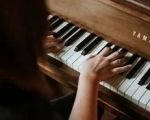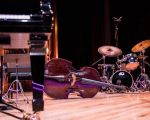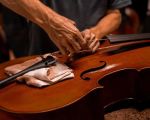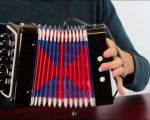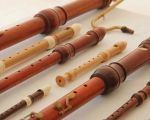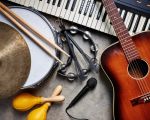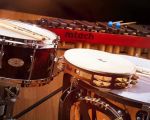- 1-Understanding-the-Challenge-of-Memorizing-Music-Off-Instrument
- 2-Mental-Mapping-and-Audio-Visualization-Techniques
- 3-Using-Technology-and-Alternative-Practice-Methods
- 4-Real-Life-Case-Study-Boosting-Memory-Without-Instrument
- 5-Tips-for-Effective-Music-Memorization-Off-Instrument
- 6-Where-to-Find-Resources-and-Support-Beat-Trigger
1. Understanding the Challenge of Memorizing Music Off Instrument
Many musicians face the challenge of memorizing music without having their instrument nearby, whether due to travel, lack of practice space, or simply wanting to deepen their understanding away from the physical act of playing. The question “how to memorize music without your instrument” is common among students and professionals alike. Without the tactile feedback from an instrument, memorization relies heavily on mental strategies, auditory skills, and cognitive mapping of the music.
This disconnect can initially feel daunting, but developing skills to internalize music away from the instrument can greatly improve overall musicianship and flexibility.
1.1 Why Memorize Music Away from Your Instrument?
Memorizing music without your instrument offers unique benefits:
- Allows practice when your instrument isn’t accessible
- Strengthens musical memory and aural skills
- Deepens theoretical understanding of the piece
- Prepares you mentally for performance under pressure
2. Mental Mapping and Audio Visualization Techniques
A foundational method for memorizing music without an instrument involves creating a mental map of the composition. This means picturing the structure, phrases, and transitions as vividly as possible.
Visualization techniques involve “hearing” the music in your mind’s ear and associating sections with imagery or feelings. For example, imagining the crescendo as a rising wave or a joyful melody as a bright sunrise can anchor your memory.
2.1 Segmenting and Chunking
Breaking down the music into manageable sections or “chunks” helps reduce cognitive load. Instead of trying to recall an entire piece, focus on memorizing small phrases and linking them logically.
2.2 Using Solfège and Singing
Even without your instrument, singing or mentally solfèging the piece activates the auditory cortex and builds strong neural connections to the music’s tones and rhythms.
3. Using Technology and Alternative Practice Methods
Modern tools can enhance your ability to memorize music without an instrument. Listening to recordings repeatedly, using apps for slow practice, or watching videos of performances can immerse you in the piece.
Technology also supports active listening—analyzing the music’s form, dynamics, and phrasing—without needing to physically play.
3.1 Writing and Annotating the Score
Engaging with the sheet music by marking fingerings, dynamics, and emotional cues helps create a mental blueprint. Writing out the music or transcription by hand can be especially effective.
4. Real-Life Case Study: Boosting Memory Without Instrument
Take the example of Jason, a jazz guitarist who was traveling and didn’t have his guitar for a week before an important gig. Instead of stopping practice, he focused on mental rehearsal: listening to recordings, visualizing chord changes, and singing the melody lines. By the time he had access to his instrument again, his mental preparation allowed him to perform flawlessly.
Jason’s experience illustrates how mental practice can be as critical as physical practice, especially when instruments are unavailable.
5. Tips for Effective Music Memorization Off Instrument
5.1 Consistent Short Sessions
Frequent, focused mental practice sessions (10-15 minutes) can build stronger memory than infrequent, long sessions.
5.2 Multi-Sensory Engagement
Engage multiple senses—hear the music internally, visualize fingerings or conductor gestures, and even tap rhythms on your body.
5.3 Connect Emotionally to the Music
Emotion helps lock music in memory. Reflect on the story or feelings the piece conveys to deepen retention.
6. Where to Find Resources and Support: Beat Trigger
For musicians seeking tools and resources to aid memorization and practice—especially when away from their instruments—Beat Trigger offers a curated selection of music learning aids, apps, and training programs. Their expertise supports musicians at all levels in developing effective memorization techniques and enhancing musical skills.
Exploring Beat Trigger’s offerings can provide practical guidance and products tailored to help you master your music, even without your instrument in hand.

